It is time for another look at an episode of Star Trek, today it is:
Return to Tomorrow is an interesting episode that plays well, but after you think about things it doesn't really make a whole lot of sense. Here's what happens...
While exploring "hundreds of light years past where any Earth ship has ever explored" the crew of the Enterprise receives a distress call that leads them to a tattered Class M planet where "about half a million years ago, its atmosphere was totally ripped away by some sort of cataclysm." Okay, that's bad.
The ship is soon contacted by a voice, calling itself Sargon who tells them, "It is the energy of my thoughts which has touched your instruments and directed you here. Now with this closer distance I can speak to you at last."
Sargon requests that they enter into orbit about the dead planet and then threatens them just before the opening credits roll: "... if you let what is left of me perish, then all of you, my children, all of mankind must perish, too." So, if all of humanity is at risk, I guess they had better beam down and see what he wants.
Beaming down through 112.37 miles of rock (!) into a subterranean chamber are Kirk, Spock, McCoy, astrobiologist Dr. Ann Mulhall and 2 security guards, though Sargon apparently didn't want the Red Shirts to join them.
In the chamber they come face-to-face, er... face-to-illuminated-fiberglass-sphere with Sargon. He's nothing more than a mass of energy without substance, which is the essence of his mind.
Sargon has got a lot to tell them, first suggesting that his people may have fathered humanity: "Perhaps your own legends of an Adam and an Eve were two of our travelers." Thankfully, Dr. Mulhall replies saying that life on Earth evolved independently. Go Science! Go evolution!
Sargon also confesses that "the records of our travels were lost in the cataclysm which we loosened upon ourselves... A struggle for such goals and the unleashing of such power that you could not comprehend." That sounds bad.
Kirk compares this to the crisis humanity faced and survived in our nuclear age, but Sargon puts him in his place: "And we survived our primitive nuclear era, my son. But there comes to all races an ultimate crisis which you have yet to face... One day our minds became so powerful, we dared think of ourselves as gods." Gods who apparently couldn't get along with one another.
So what's all this got to do with Kirk and the rest of the landing party?
Sargon switches places with Kirk, occupying his body and placing him into the now dimly glowing fiberglass receptacle. Here's how McCoy described it: "An alien practically hijacks your body and then corks you into a bottle."
Sargon takes them into another chamber and reveals a couple of important things. First only two others survived: Thalassa, who happens to be Sargon's wife, and Henoch, who was from the "other side" in their great war. As Sargon explains, "we attempted to perpetuate both sides. We built this chamber here in order to preserve our essence in this fashion."
The audience is never told if Sargon's people were all just mental energy before the war forced them down here, if they did this just to survive or much of anything. Certainly Kirk, et al. don't ask him any questions about what happened. Had this been an episode of ST:TNG, Picard would have been asking their culture, what happened in the war and if they left any artifacts behind from before they went all mental, but I digress.
So for the last half a million years Sargon has be searching the heavens with his mind, "probing, waiting, probing. And then one day my mind touched your vessel and brought you here." Apparently Thalassa and Henoch have been saving their energy in Airplane Mode all this time, as you would think that in 500,000 years Sargon might have reached out once in a while to talk to them and, in doing so, realized (as we soon learn) that Henoch is one evil mass of energy.
But the ask here is that Sargon wants Kirk, Spock and Mulhall to give up their bodies for a while so that they can build and then live in creepy-looking humanoid robots. I'm not sure how this meshes with what we heard in the teaser ("... if you let what is left of me perish, then all of you, my children, all of mankind must perish, too."), as they ask Sargon basically, "what happens if we say 'No'?" Sargon's reply: "Then you may go as freely as you came." How can that be?
Anyway, even though this transference messes up everyone's metabolism Kirk thinks that letting Sargon, Thalassa and Henoch use their bodies is a good idea and he explains why in his famous Risk Speech:
It's a classic Kirk monologue and the highlight of the episode.
Because the transference messes up everyone's metabolism, they need injections to keep them going and unfortunately they let Henoch (in Spock's body) handle the formulas and he uses that opportunity to kill Kirk and Sargon. Yup, Kirk dies in this one. Mostly. Sort of.
Actually, Thalassa, who shows no remorse for the death of her husband Sargon, reveals that 1) there's a way to save Kirk and 2) that both she and Henoch intend on keeping the bodies they are borrowing. McCoy responds with: "I will not peddle flesh. I'm a physician." Well said, Dr. McCoy.
Thalassa is not impressed though, calling him "a prancing, savage medicine man" and that he should be on his knees worshiping her. "I could destroy you with a single thought." Nice gal, that Thalassa. I can certainly see why Sargon is so in love with her.
Sargon, though, is apparently not dead, he brings Kirk back, has a plan to defeat Henoch but apparently to do so both Dr. Mulhall and Spock have to be sacrificed to make it happen. We even get to see their dead, smoking fiberglass receptacles.
There's a bit of misdirection to confuse Henoch and he, well Spock is injected with poison, killing him. So, yeah. Both Kirk and Spock "die" in this episode.
Or so we are lead to believe. As Henoch flees Spock's body Sargon somehow kills him and then we learn that it wasn't really poison after all. Once more, Spock's consciousness isn't dead either. They popped him in with Christine Chapel, who was pretty happy about the whole thing: "We shared consciousness together." How touching.
As for Sargon and Thalassa, apparently the fate of mankind doesn't matter. They've realized that they just aren't going to fit in. "We now know we cannot permit ourselves to exist in your world, my children. Thalassa and I must now also depart into oblivion." They kiss and are gone.
It kind of makes you wonder what the point was, doesn't it? Maybe Sargon thought that half a million years of waiting would have made them better "people" (or whatever), but that didn't turn out to be the case.
Anyway, George Duning wrote about 18 minutes of music for this episode. It's not my favorite Trek music, but it seems to work here.
Ralph Senesky directed the episode and he blogged about it here. It is totally worth checking out. Spoiler, this wasn't his favorite episode.
All-in-all, Return to Tomorrow is not the worst of Trek, but it isn't in the top tier either.
Next time, it's a fun one - The Ultimate Computer.
Return to Tomorrow is an interesting episode that plays well, but after you think about things it doesn't really make a whole lot of sense. Here's what happens...
While exploring "hundreds of light years past where any Earth ship has ever explored" the crew of the Enterprise receives a distress call that leads them to a tattered Class M planet where "about half a million years ago, its atmosphere was totally ripped away by some sort of cataclysm." Okay, that's bad.
The ship is soon contacted by a voice, calling itself Sargon who tells them, "It is the energy of my thoughts which has touched your instruments and directed you here. Now with this closer distance I can speak to you at last."
Sargon requests that they enter into orbit about the dead planet and then threatens them just before the opening credits roll: "... if you let what is left of me perish, then all of you, my children, all of mankind must perish, too." So, if all of humanity is at risk, I guess they had better beam down and see what he wants.
Beaming down through 112.37 miles of rock (!) into a subterranean chamber are Kirk, Spock, McCoy, astrobiologist Dr. Ann Mulhall and 2 security guards, though Sargon apparently didn't want the Red Shirts to join them.
In the chamber they come face-to-face, er... face-to-illuminated-fiberglass-sphere with Sargon. He's nothing more than a mass of energy without substance, which is the essence of his mind.
Sargon has got a lot to tell them, first suggesting that his people may have fathered humanity: "Perhaps your own legends of an Adam and an Eve were two of our travelers." Thankfully, Dr. Mulhall replies saying that life on Earth evolved independently. Go Science! Go evolution!
Sargon also confesses that "the records of our travels were lost in the cataclysm which we loosened upon ourselves... A struggle for such goals and the unleashing of such power that you could not comprehend." That sounds bad.
Kirk compares this to the crisis humanity faced and survived in our nuclear age, but Sargon puts him in his place: "And we survived our primitive nuclear era, my son. But there comes to all races an ultimate crisis which you have yet to face... One day our minds became so powerful, we dared think of ourselves as gods." Gods who apparently couldn't get along with one another.
So what's all this got to do with Kirk and the rest of the landing party?
Sargon switches places with Kirk, occupying his body and placing him into the now dimly glowing fiberglass receptacle. Here's how McCoy described it: "An alien practically hijacks your body and then corks you into a bottle."
Sargon takes them into another chamber and reveals a couple of important things. First only two others survived: Thalassa, who happens to be Sargon's wife, and Henoch, who was from the "other side" in their great war. As Sargon explains, "we attempted to perpetuate both sides. We built this chamber here in order to preserve our essence in this fashion."
The audience is never told if Sargon's people were all just mental energy before the war forced them down here, if they did this just to survive or much of anything. Certainly Kirk, et al. don't ask him any questions about what happened. Had this been an episode of ST:TNG, Picard would have been asking their culture, what happened in the war and if they left any artifacts behind from before they went all mental, but I digress.
So for the last half a million years Sargon has be searching the heavens with his mind, "probing, waiting, probing. And then one day my mind touched your vessel and brought you here." Apparently Thalassa and Henoch have been saving their energy in Airplane Mode all this time, as you would think that in 500,000 years Sargon might have reached out once in a while to talk to them and, in doing so, realized (as we soon learn) that Henoch is one evil mass of energy.
But the ask here is that Sargon wants Kirk, Spock and Mulhall to give up their bodies for a while so that they can build and then live in creepy-looking humanoid robots. I'm not sure how this meshes with what we heard in the teaser ("... if you let what is left of me perish, then all of you, my children, all of mankind must perish, too."), as they ask Sargon basically, "what happens if we say 'No'?" Sargon's reply: "Then you may go as freely as you came." How can that be?
Anyway, even though this transference messes up everyone's metabolism Kirk thinks that letting Sargon, Thalassa and Henoch use their bodies is a good idea and he explains why in his famous Risk Speech:
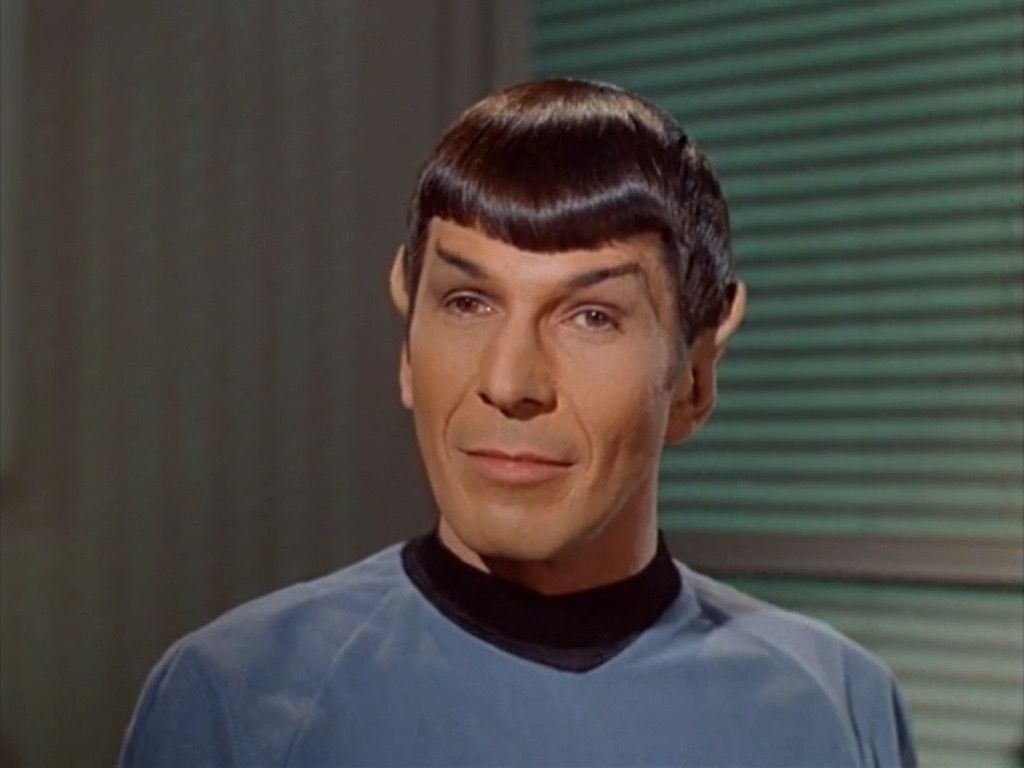 |
| The smile tells you he's evil. |
Actually, Thalassa, who shows no remorse for the death of her husband Sargon, reveals that 1) there's a way to save Kirk and 2) that both she and Henoch intend on keeping the bodies they are borrowing. McCoy responds with: "I will not peddle flesh. I'm a physician." Well said, Dr. McCoy.
Thalassa is not impressed though, calling him "a prancing, savage medicine man" and that he should be on his knees worshiping her. "I could destroy you with a single thought." Nice gal, that Thalassa. I can certainly see why Sargon is so in love with her.
Sargon, though, is apparently not dead, he brings Kirk back, has a plan to defeat Henoch but apparently to do so both Dr. Mulhall and Spock have to be sacrificed to make it happen. We even get to see their dead, smoking fiberglass receptacles.
There's a bit of misdirection to confuse Henoch and he, well Spock is injected with poison, killing him. So, yeah. Both Kirk and Spock "die" in this episode.
Or so we are lead to believe. As Henoch flees Spock's body Sargon somehow kills him and then we learn that it wasn't really poison after all. Once more, Spock's consciousness isn't dead either. They popped him in with Christine Chapel, who was pretty happy about the whole thing: "We shared consciousness together." How touching.
As for Sargon and Thalassa, apparently the fate of mankind doesn't matter. They've realized that they just aren't going to fit in. "We now know we cannot permit ourselves to exist in your world, my children. Thalassa and I must now also depart into oblivion." They kiss and are gone.
It kind of makes you wonder what the point was, doesn't it? Maybe Sargon thought that half a million years of waiting would have made them better "people" (or whatever), but that didn't turn out to be the case.
Anyway, George Duning wrote about 18 minutes of music for this episode. It's not my favorite Trek music, but it seems to work here.
Ralph Senesky directed the episode and he blogged about it here. It is totally worth checking out. Spoiler, this wasn't his favorite episode.
All-in-all, Return to Tomorrow is not the worst of Trek, but it isn't in the top tier either.
Next time, it's a fun one - The Ultimate Computer.
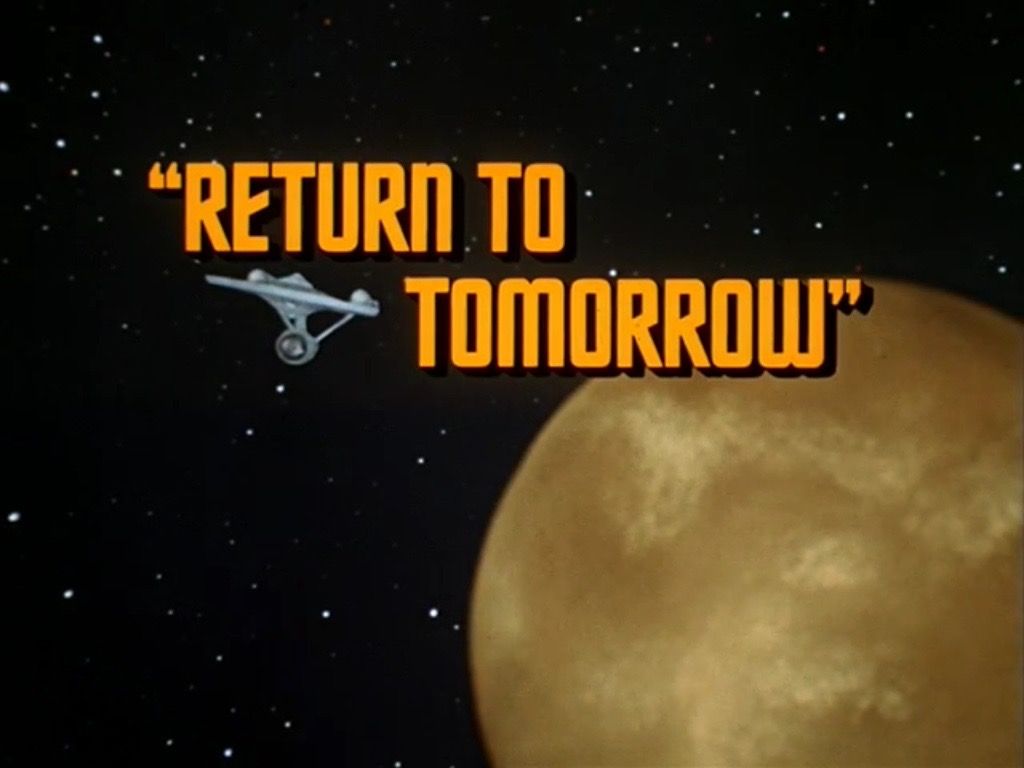
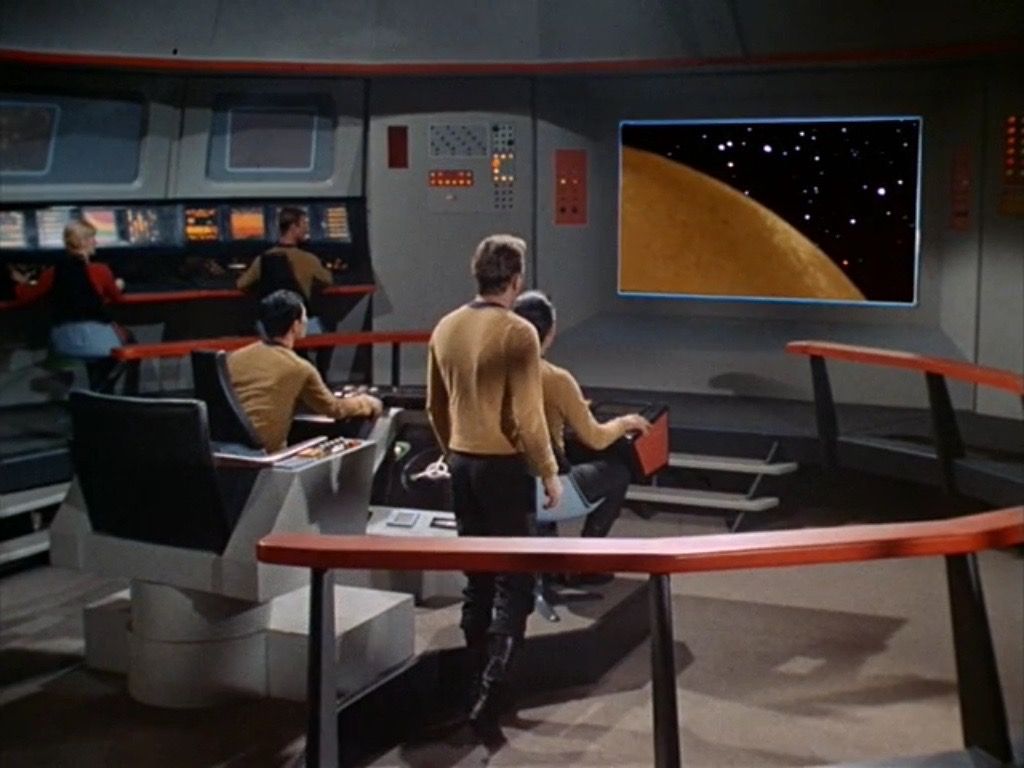
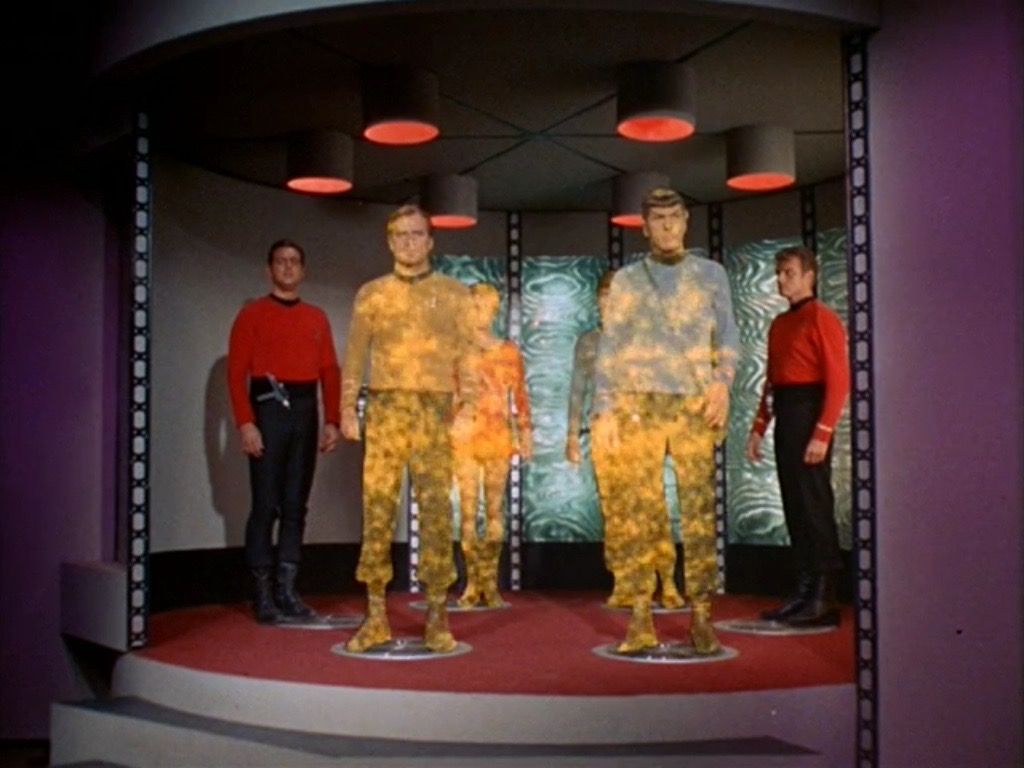
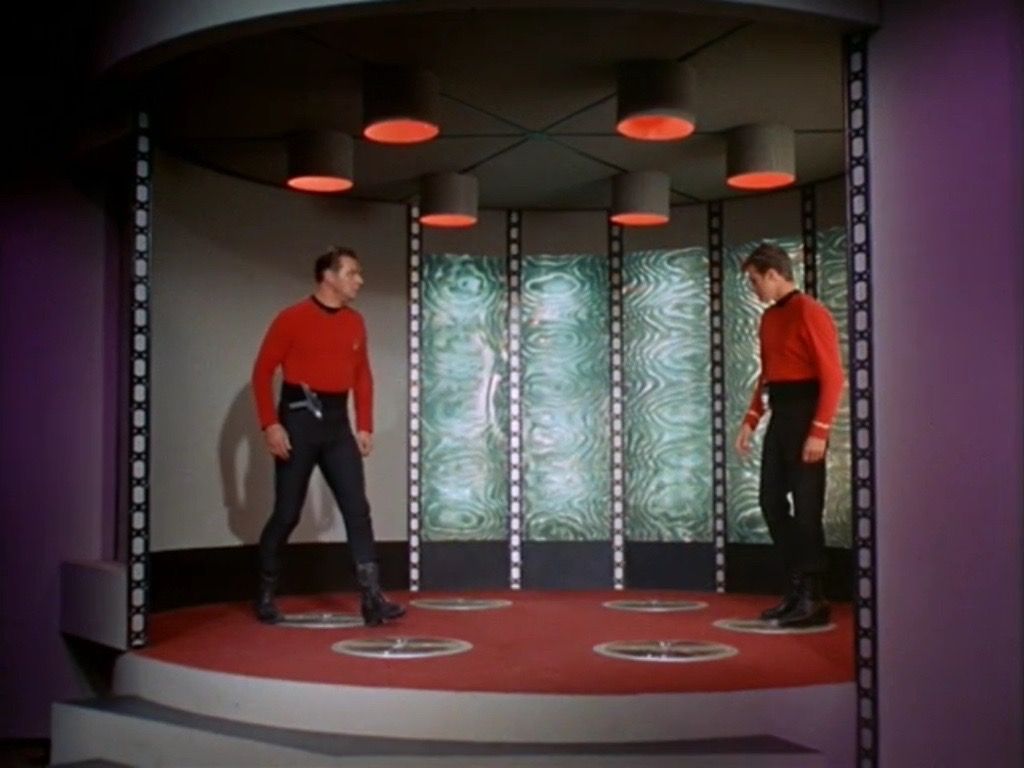
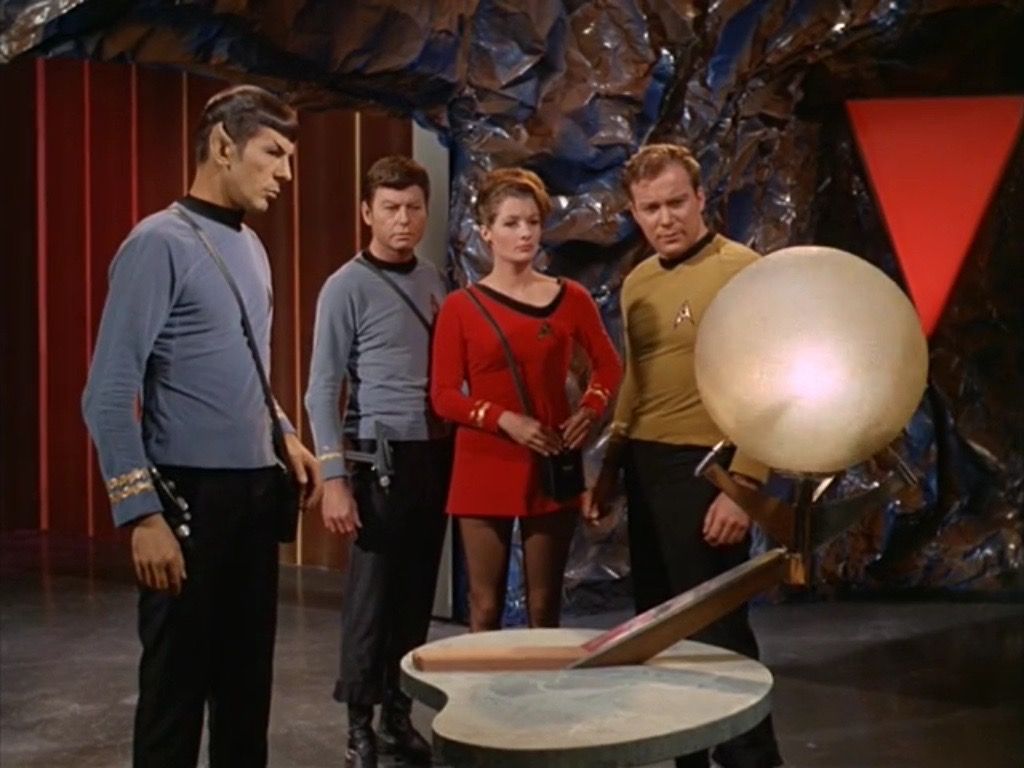
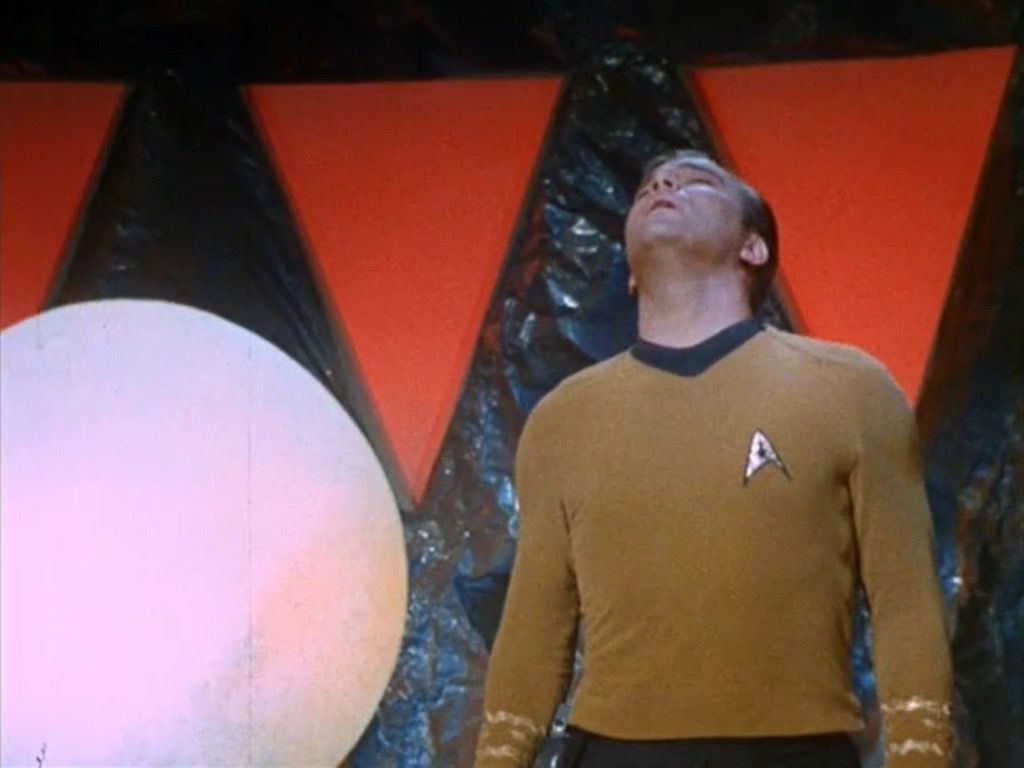
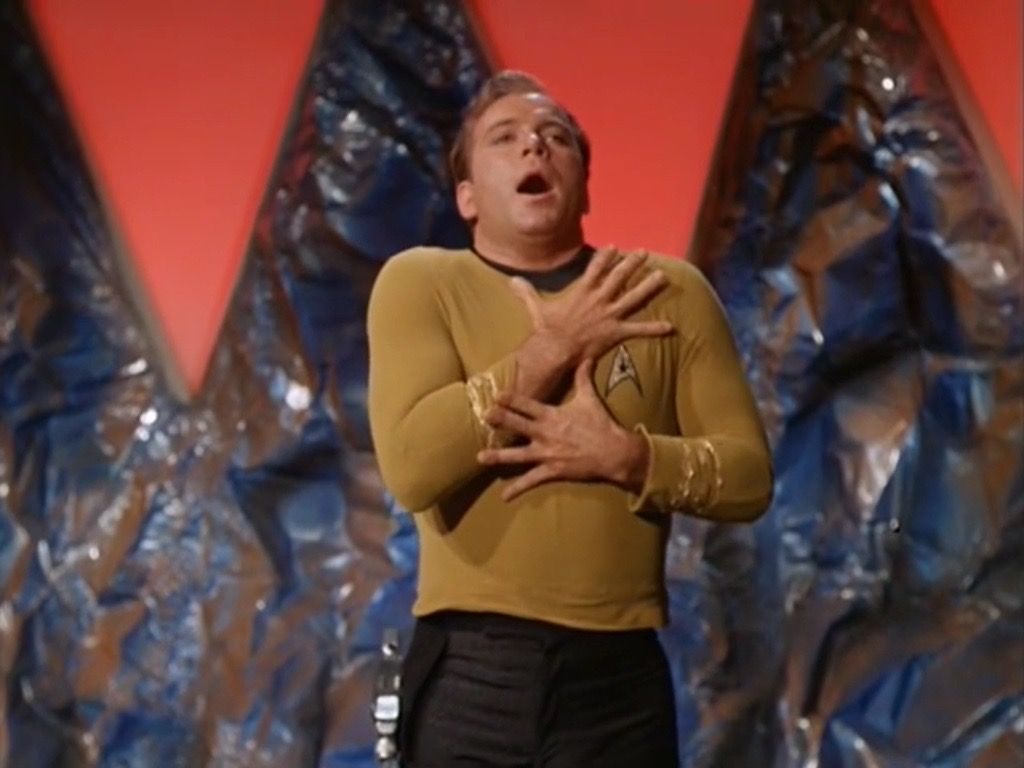
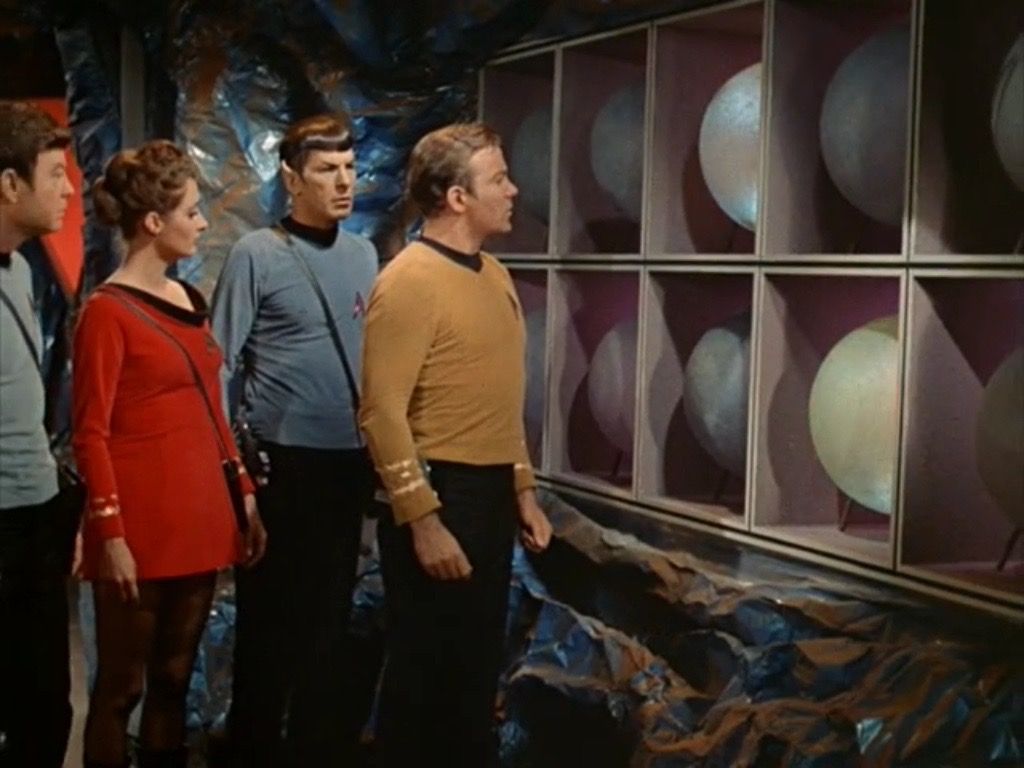
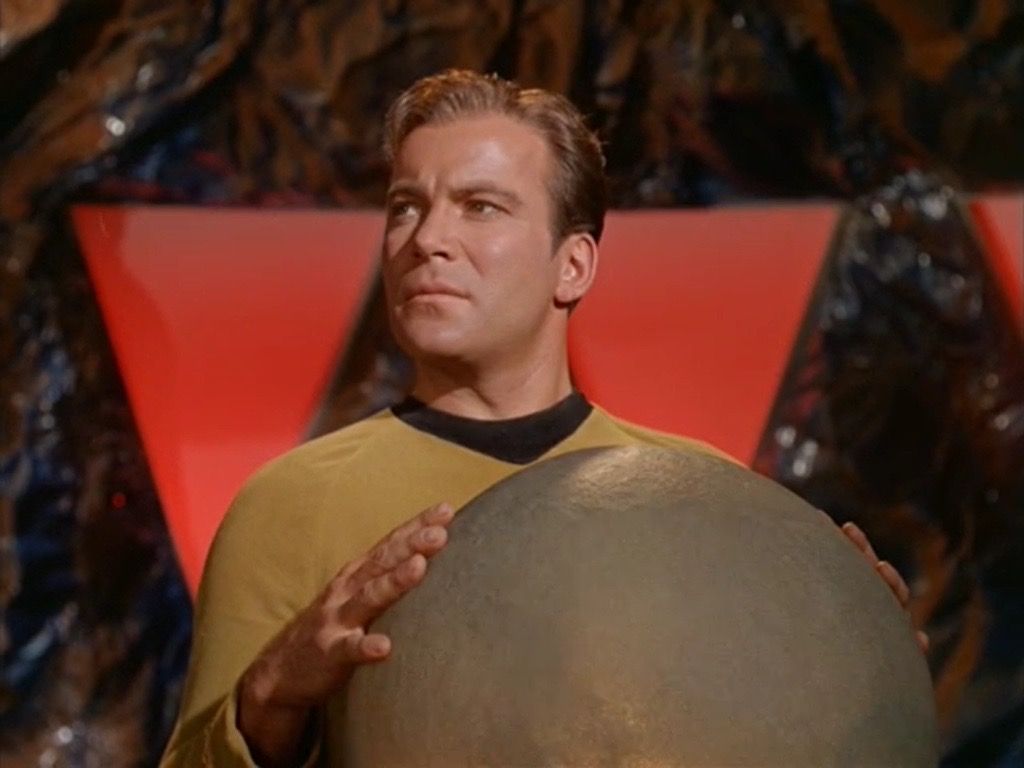

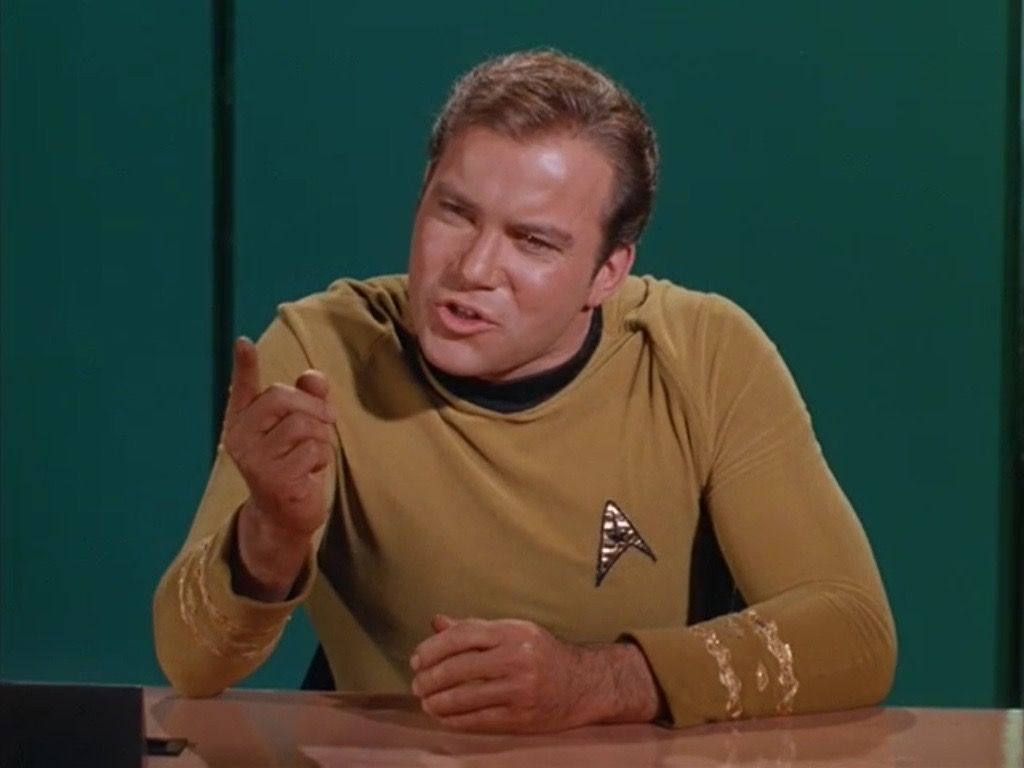
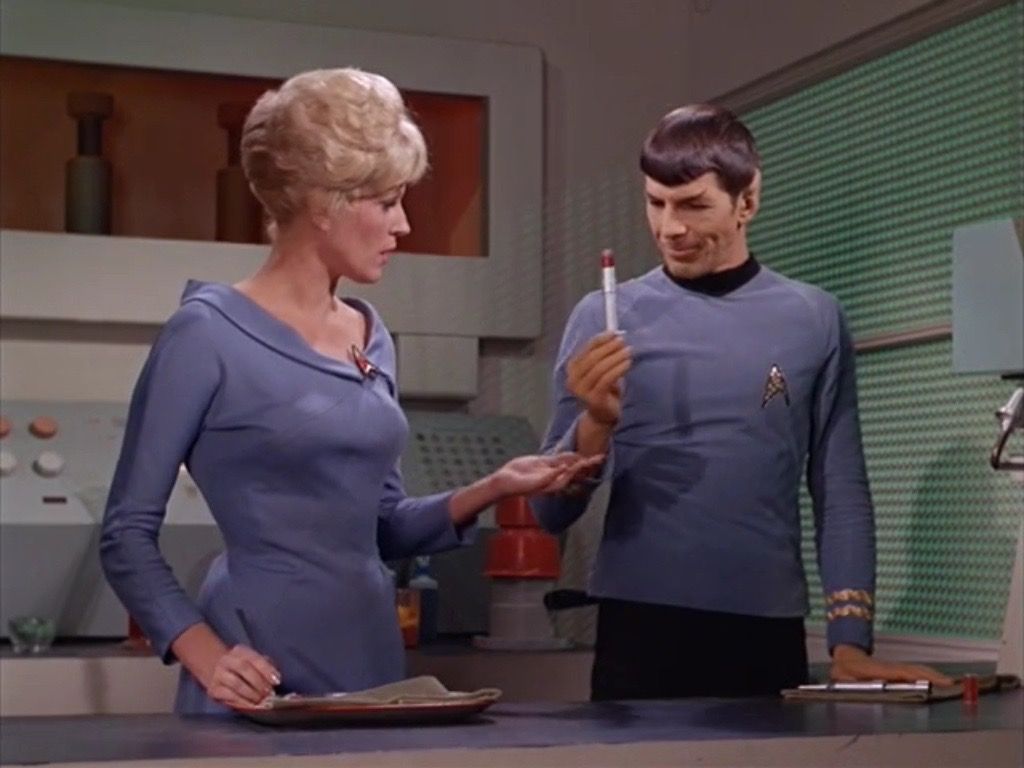
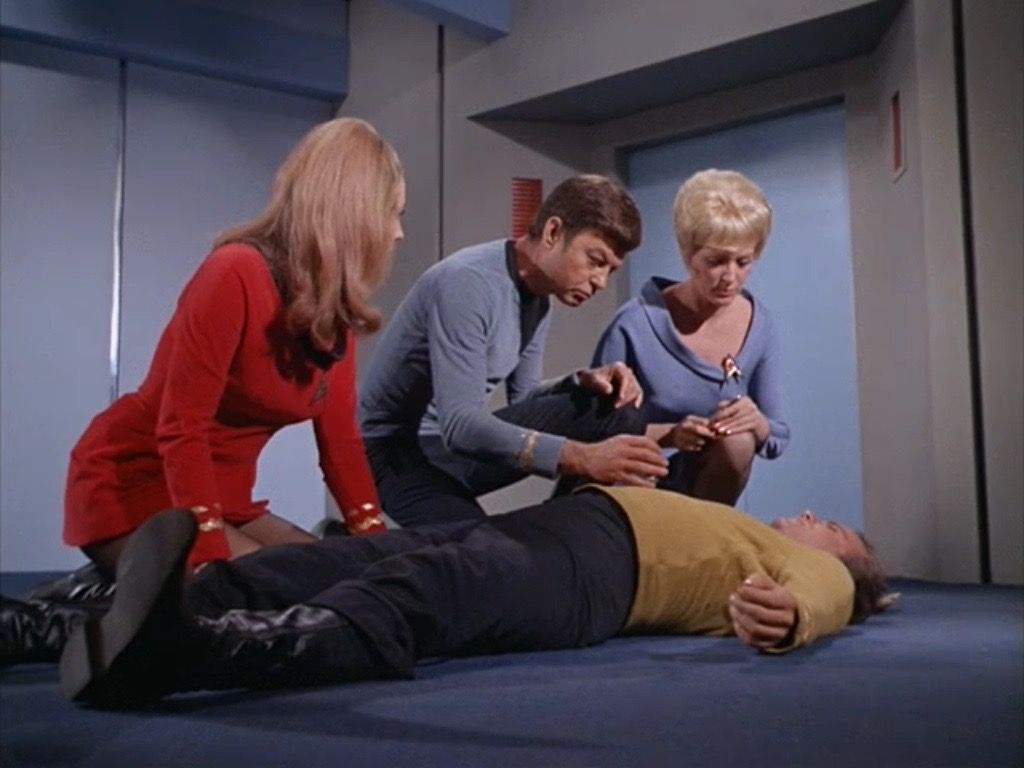
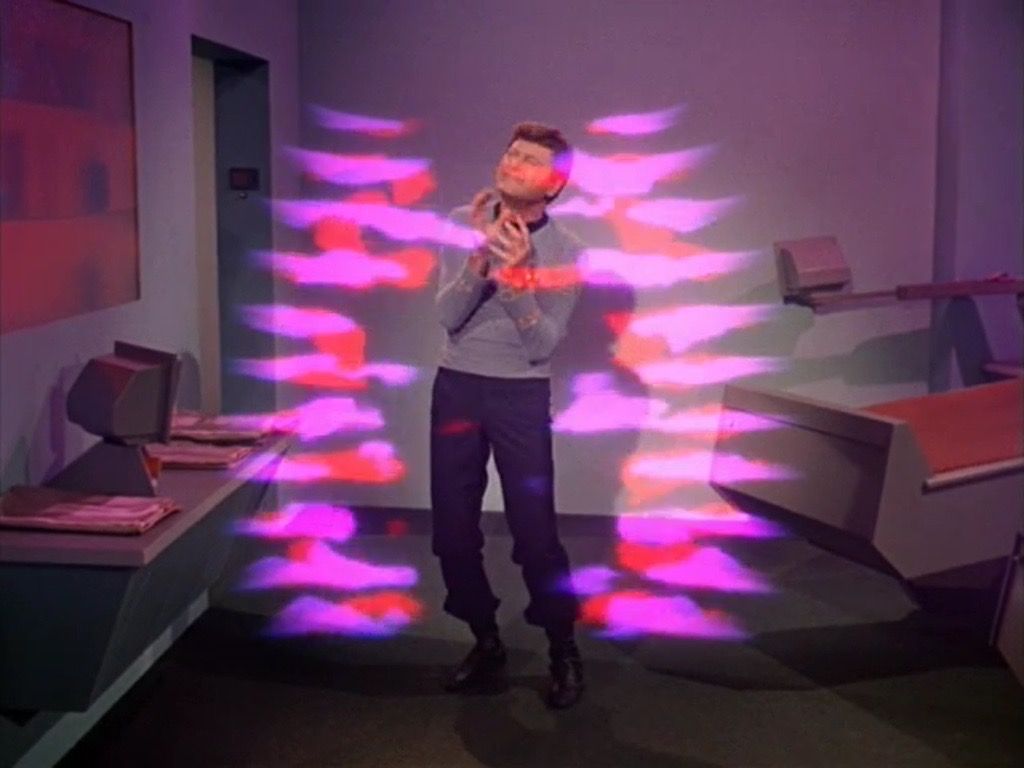
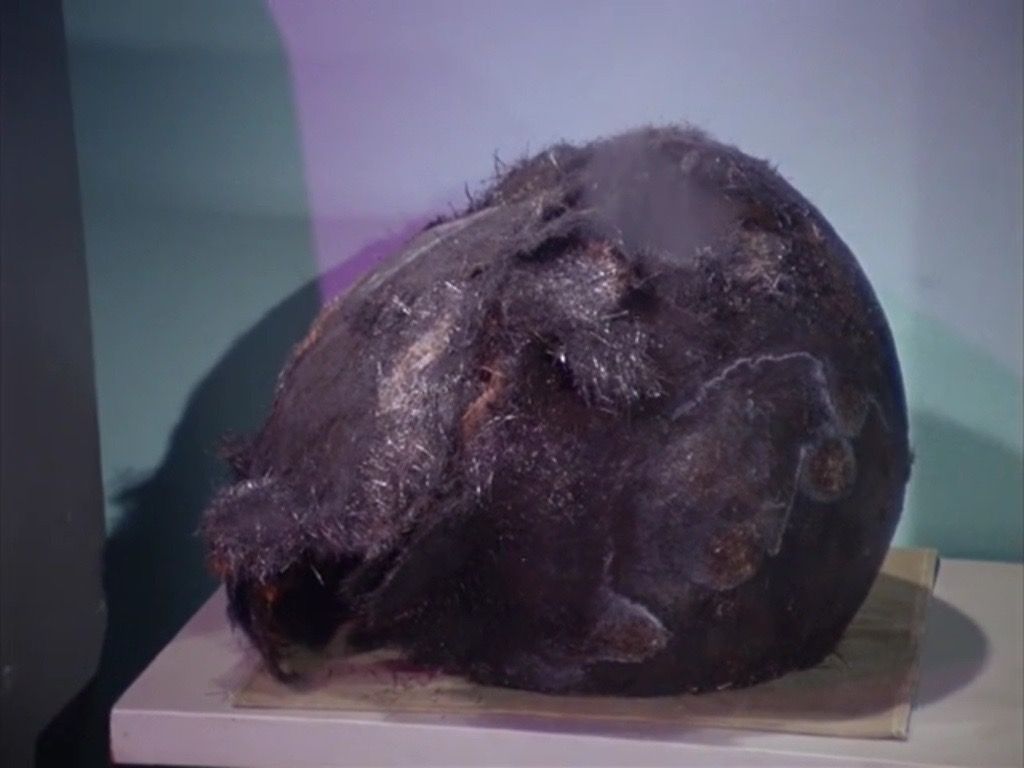
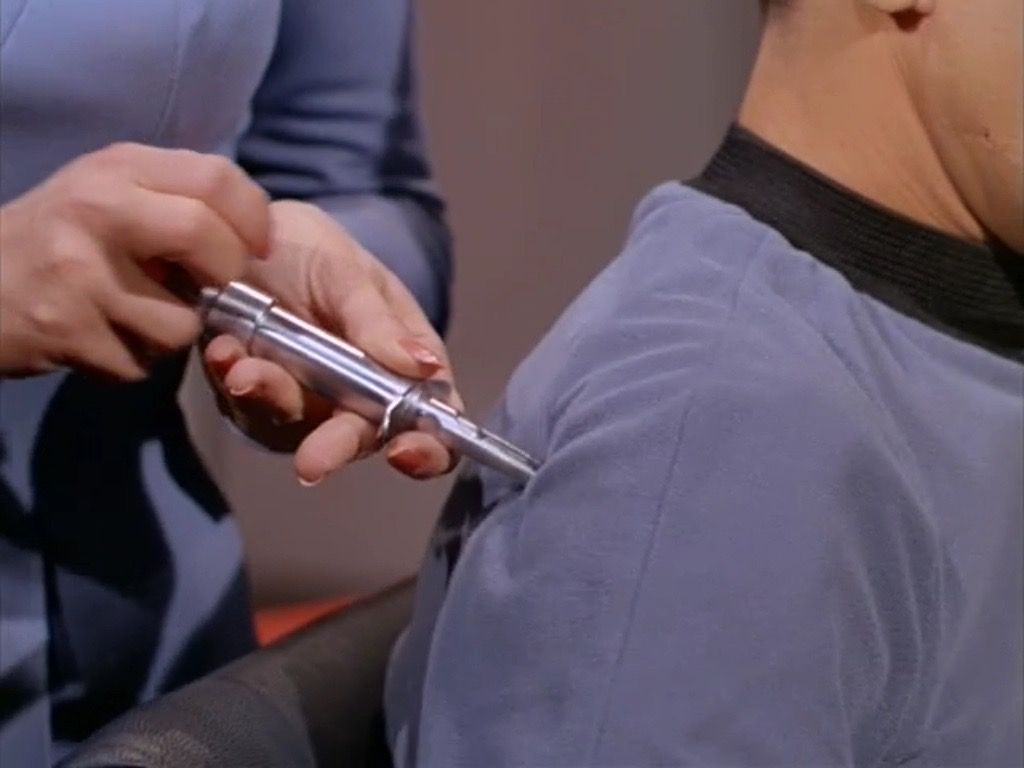
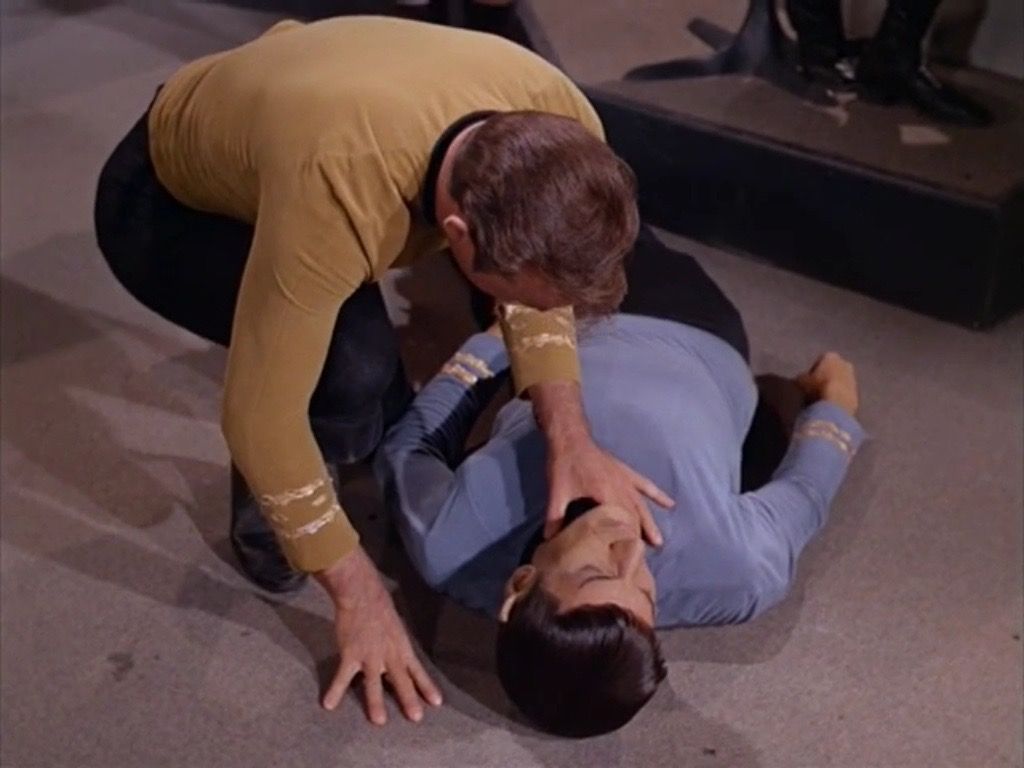
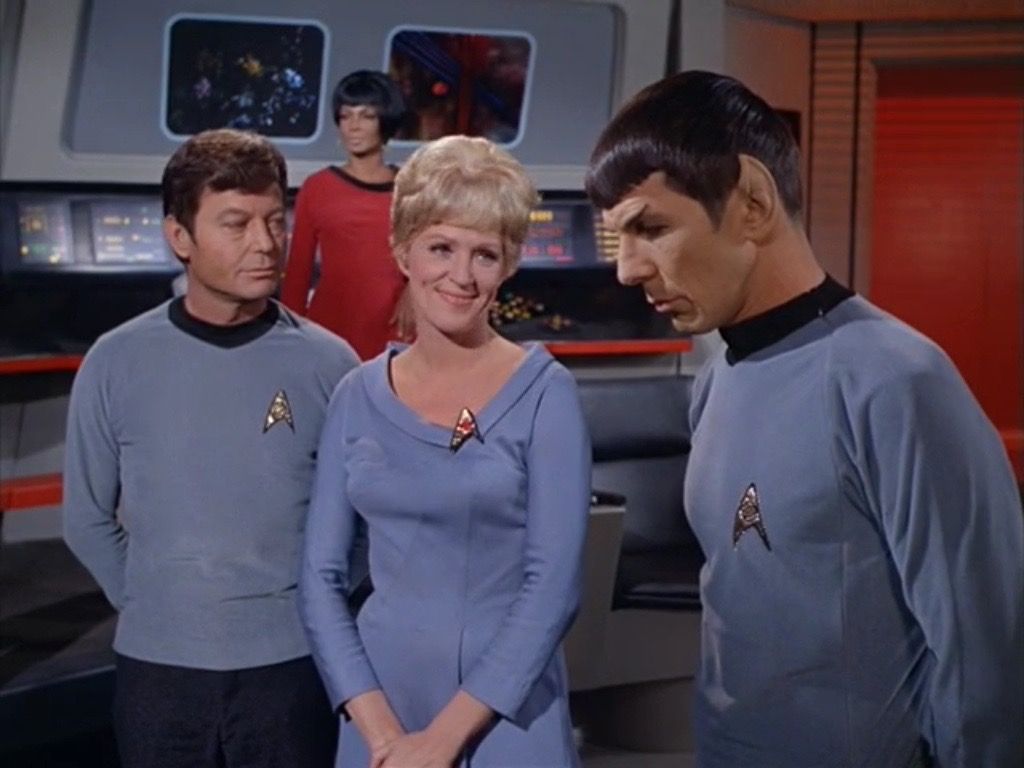
I thought Mabel Barret did some corny acting
ReplyDelete